"2008 TC3: The Asteroid Foreseen"

Introduction
In October 2008, a small asteroid named 2008 TC3 was discovered by the Catalina Sky Survey in Arizona. This asteroid was unique because it was the first to be detected before it entered Earth's atmosphere, giving scientists the opportunity to study its properties and potential impact. In this article, we will explore the discovery of 2008 TC3, its characteristics, and its significance in the study of asteroids.
Discovery of 2008 TC3
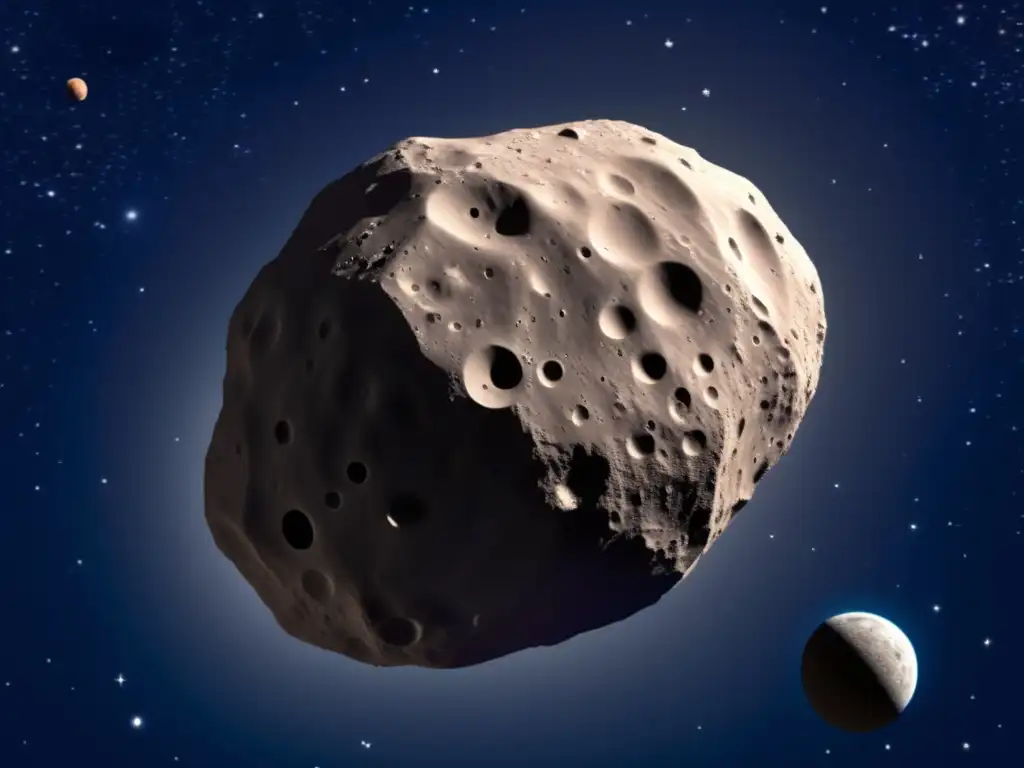
The Catalina Sky Survey
The Catalina Sky Survey is a NASA-funded program that uses three telescopes in Arizona to search for near-Earth objects (NEOs). The survey's goal is to discover and track NEOs that could pose a threat to Earth. On October 6, 2008, one of the telescopes detected an object that was later identified as 2008 TC3. The discovery was announced the next day, less than 24 hours before the asteroid entered Earth's atmosphere.
Predicting 2008 TC3's Impact
Once 2008 TC3 was detected, astronomers were able to determine its trajectory and predict where it would impact Earth. The asteroid was estimated to be about 4 meters (13 feet) in diameter and was projected to impact Sudan, Africa. This prediction allowed for emergency services to be notified, and the impact site was searched for any fragments that may have survived the fall.
Studying 2008 TC3
2008 TC3's discovery provided a unique opportunity to study the properties of an asteroid before it entered Earth's atmosphere. Astronomers were able to analyze the asteroid's composition using spectroscopy, a technique that measures the light reflected off an object to determine its chemical makeup. The spectral data obtained from 2008 TC3 suggested that it was made of a type of meteorite called ureilite, which contains carbon and other minerals that are rare in most meteorites.
Characteristics of 2008 TC3
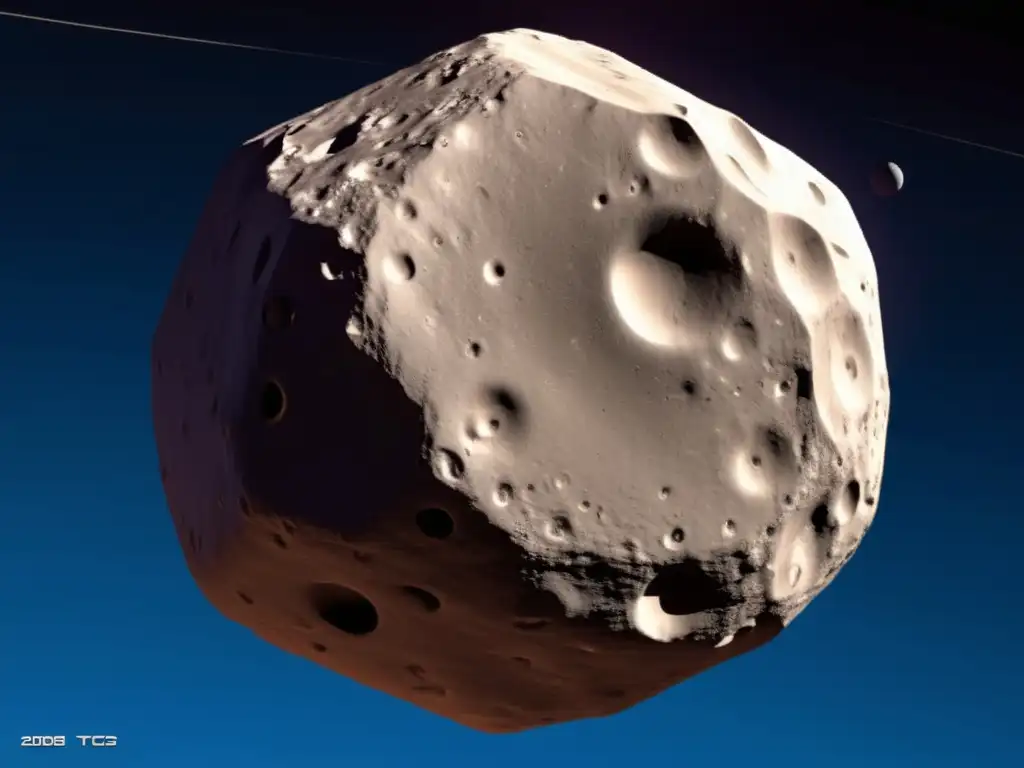
Size and Shape
As mentioned earlier, 2008 TC3 was estimated to be about 4 meters (13 feet) in diameter. Its small size meant that it would have burned up almost entirely in Earth's atmosphere, leaving behind only small fragments. Additionally, the asteroid was irregularly shaped, with a rough surface and several craters.
Composition
As previously mentioned, 2008 TC3 was found to be a ureilite meteorite. Ureilites are a rare type of meteorite that make up less than 1% of all known meteorites. They are believed to be remnants of the mantle of a parent body, possibly a disrupted asteroid. Ureilites contain minerals that are thought to have formed under extreme heat and pressure, making them unique among meteorites.
Impact on Earth
Although 2008 TC3 was small and did not pose a significant threat to Earth, its impact provided valuable information about the effects of an asteroid strike. The energy released from the impact was estimated to be equivalent to about a kiloton of TNT, or roughly one thirtieth the size of the atomic bomb dropped on Hiroshima. The impact created a small crater and scattered meteorite fragments in the surrounding area. These fragments provided scientists with valuable specimens to study and analyze.
Significance of 2008 TC3
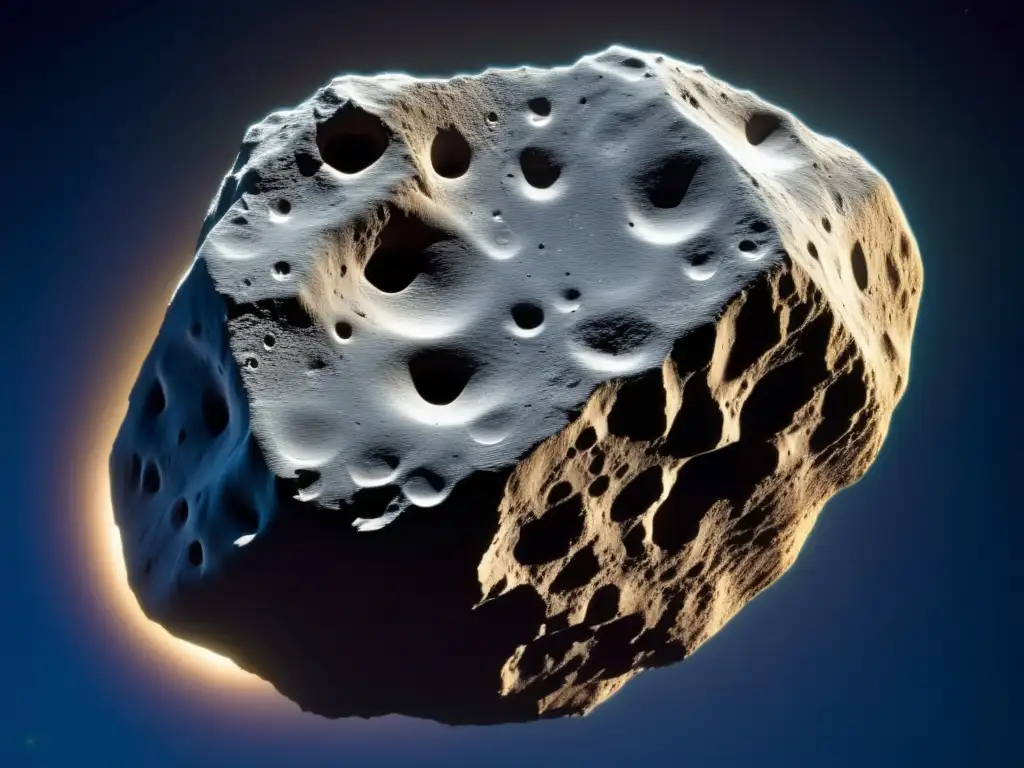
Preventing Catastrophic Impacts
The discovery of 2008 TC3 highlighted the importance of early detection in preventing catastrophic impacts. Had 2008 TC3 been larger and on a collision course with a populated area, the outcome could have been disastrous. The detection of small asteroids like 2008 TC3 allows for early warning and potentially life-saving measures to be taken.
Studying Asteroids
2008 TC3's discovery also provided scientists with a unique opportunity to study the properties of an asteroid before it entered Earth's atmosphere. The spectral data obtained from 2008 TC3 allowed for a greater understanding of the composition and origin of ureilites, which may provide clues about the early history of our solar system.
Frequently Asked Questions
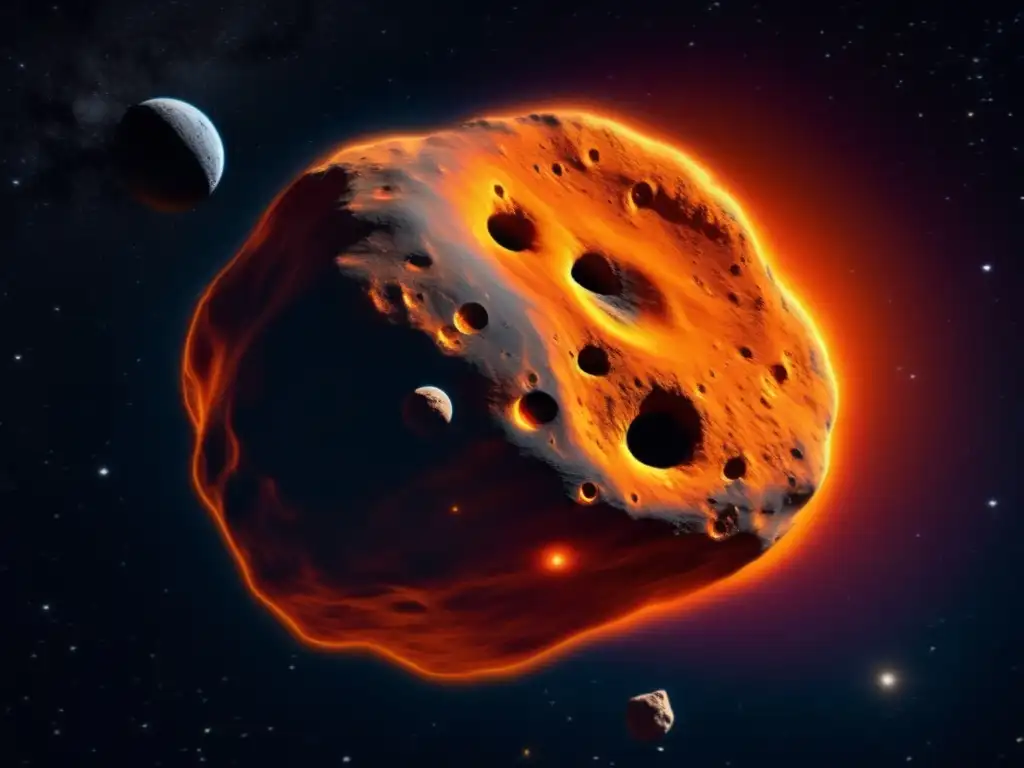
-
What is the significance of 2008 TC3?
The discovery of 2008 TC3 highlighted the importance of early detection in preventing catastrophic impacts, and provided scientists with a unique opportunity to study the properties of an asteroid before it entered Earth's atmosphere.
-
What is a ureilite meteorite?
Ureilites are a rare type of meteorite that make up less than 1% of all known meteorites. They contain minerals that are thought to have formed under extreme heat and pressure, making them unique among meteorites.
-
Did 2008 TC3 pose a threat to Earth?
Although 2008 TC3 was small and did not pose a significant threat to Earth, its impact provided valuable information about the effects of an asteroid strike.
-
How was 2008 TC3 discovered?
2008 TC3 was discovered by the Catalina Sky Survey in Arizona, a program funded by NASA to search for near-Earth objects.
-
What did scientists learn from the study of 2008 TC3?
The study of 2008 TC3 provided scientists with valuable information about the properties and composition of ureilite meteorites, which may provide clues about the early history of our solar system.
Conclusion
The discovery of 2008 TC3 was significant because it highlighted the importance of early detection in preventing catastrophic impacts and provided scientists with a unique opportunity to study the properties of an asteroid before it entered Earth's atmosphere. The study of 2008 TC3 allowed for a greater understanding of the composition and origin of ureilites, and may provide clues about the early history of our solar system. As we continue to explore asteroids and their properties, it is important to remember the potential impact they can have on our planet and the importance of studying them.
Thank you for taking the time to read this article. We encourage you to share your thoughts in the comments section and to positively interact with Asteroid Realm, whether by subscribing, sharing the article on social networks, or other forms of participation.
Additional Resources
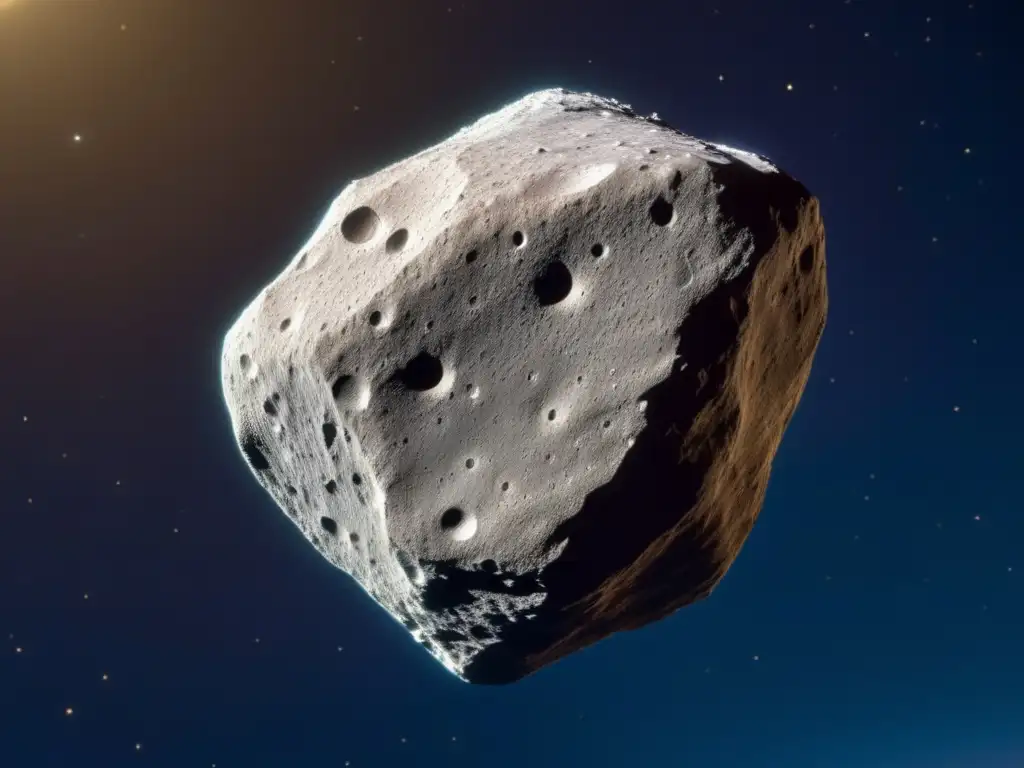
For more information on asteroids, their properties, and their impact on Earth, check out these resources:
 "Asteroid Pioneers: The Men And Women Behind The Discoveries"
"Asteroid Pioneers: The Men And Women Behind The Discoveries" "The Unveiling Of 1996 PW: An Unusual Asteroid"
"The Unveiling Of 1996 PW: An Unusual Asteroid"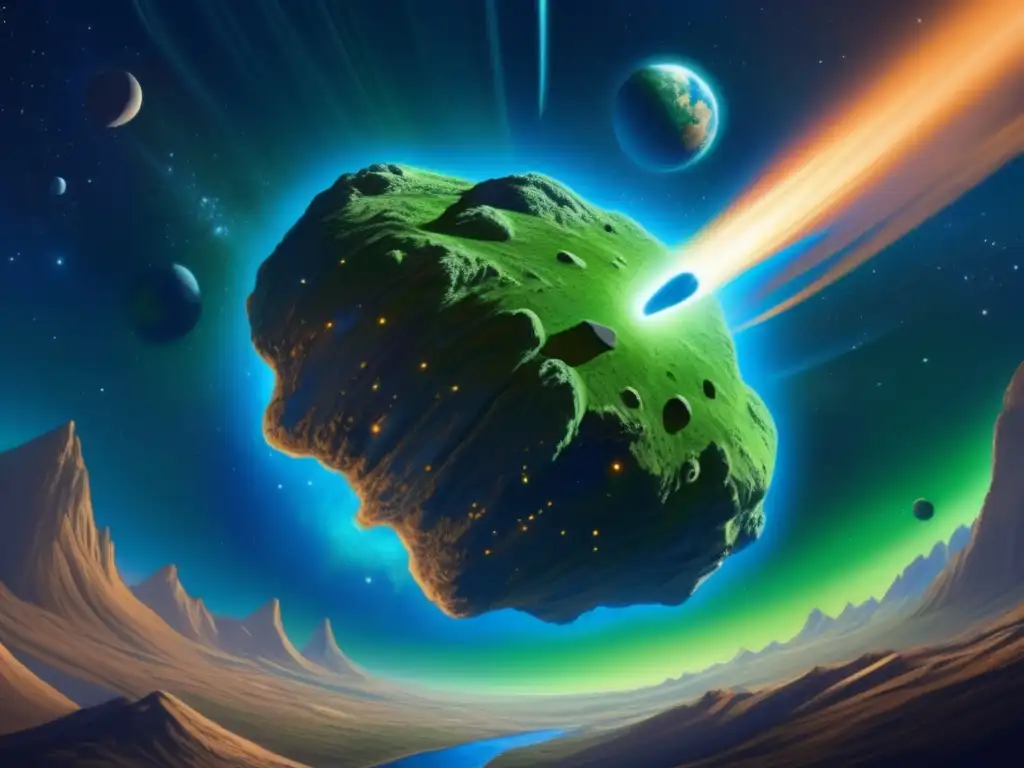 "Dancing With Asteroids: The Story Of 3753 Cruithne"
"Dancing With Asteroids: The Story Of 3753 Cruithne"If you want to discover more articles similar to "2008 TC3: The Asteroid Foreseen", you can visit the Asteroid Discoveries category.
Leave a Reply

Articulos relacionados: